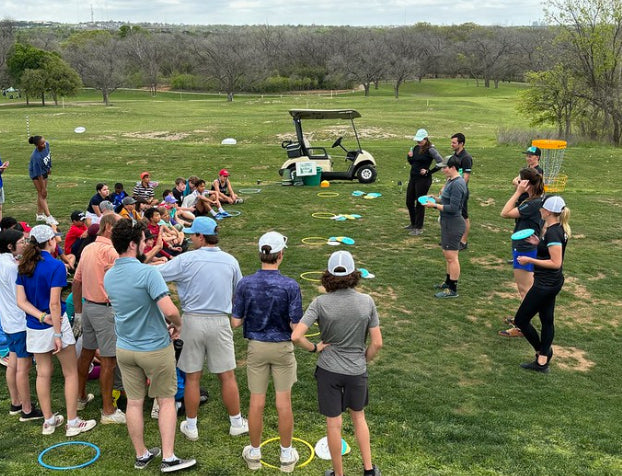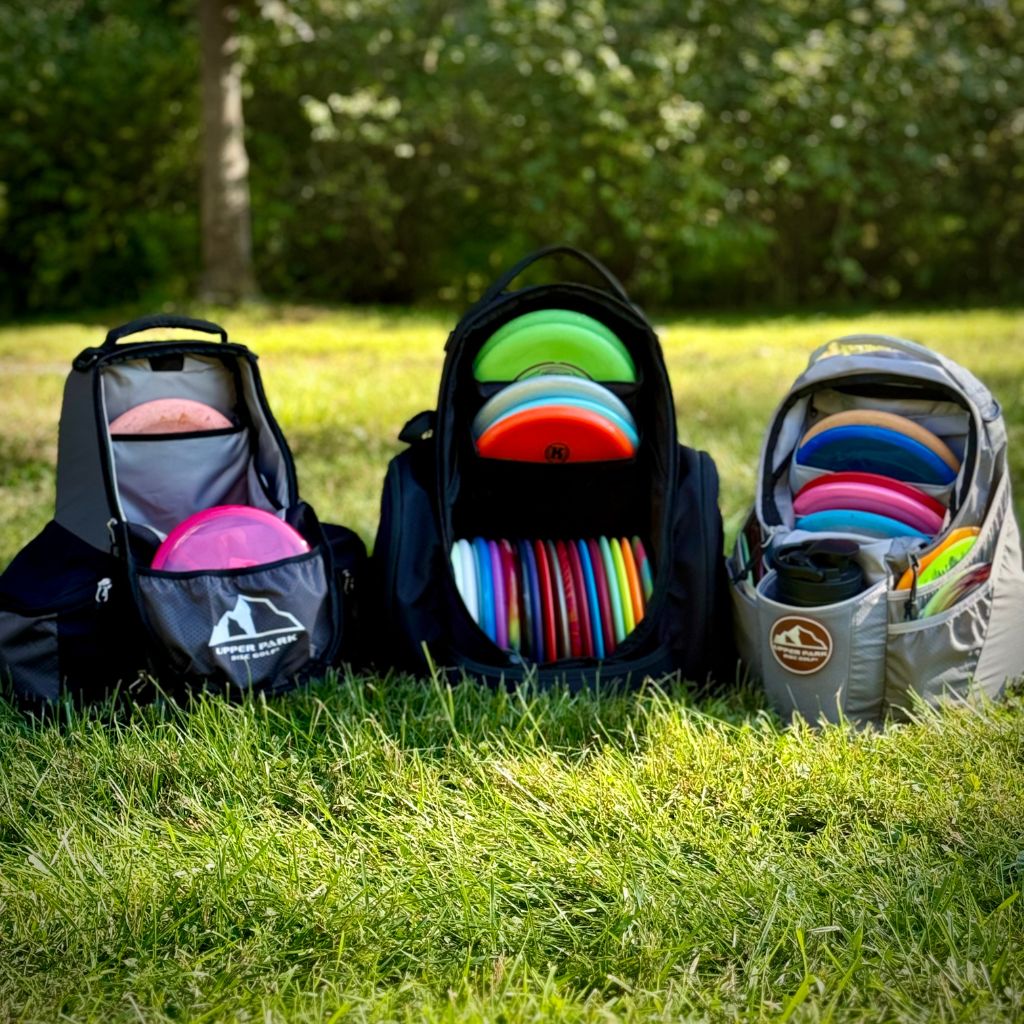
The Ultimate Guide to Disc Golf
The Ultimate Beginner's Guide to Disc Golf: Everything You Need to Know
Disc golf, sometimes called disk golf, frisbee golf, or even frolf, has rapidly grown in popularity, attracting newcomers with its unique blend of physical exercise, strategic gameplay, and the sheer joy of being outdoors. Whether you're someone who's seen people tossing discs at your local park or you've heard friends rave about their latest game, this guide will provide you with everything you need to start your disc golf journey. We'll cover the basic rules, essential equipment, local courses, and tips for beginners to ensure you have the best experience possible.
Why Disc Golf?
Disc golf is more than just a sport; it's a way to connect with nature, socialize with friends, and challenge yourself. As one enthusiastic player puts it, "Disc golf is such a personal and analytical sport, but it's also a social experience with the ability to be very therapeutic." The sport offers visible feedback on your progress and has many tiny details to improve, making the fun of progression endless. Whether you're out for a casual round with friends or aiming to improve your skills, disc golf has something for everyone.

Getting Started: The Basics of Disc Golf
Understanding the Game
At its core, disc golf is similar to traditional golf. Instead of clubs and balls, players use discs, aiming to complete each hole in as few throws as possible. The "hole" is a metal basket with chains designed to catch the disc. Courses typically have 9 or 18 holes, each with varying distances, terrains, and obstacles.
Equipment You'll Need
The great thing about disc golf is that you don't need much to get started. However, the right equipment can make a big difference in your game. Here's what you'll need:
- Discs: Unlike the frisbees you might be familiar with, disc golf discs are designed for different purposes. There are three main types:
- Putters: These are used for short-distance throws and are the most similar to traditional frisbees.
- Mid-range discs: These are versatile and great for a variety of throws, especially when you're starting.
- Drivers: These are designed for long-distance throws but are more challenging to control, so they’re not recommended for beginners.
A common beginner mistake is starting with high-speed drivers. As one player advises, "Start with lower speed discs like putters, then migrate to mids, then fairway drivers, and finally distance drivers if needed."
- Bag: A disc golf bag helps you carry your discs, water, snacks, and other essentials. As you progress and accumulate more discs, a good bag will become necessary. Check out the best disc golf bags to find one that meets your needs perfectly!
- Footwear: Wear sturdy shoes with good grip, as disc golf courses often involve uneven terrain, hills, and various surfaces.
Finding Local Courses
Disc golf courses are widely available, from public parks to dedicated disc golf courses. Apps like UDisc can help you find courses near you, complete with maps and reviews. When starting, look for courses with a mix of open and wooded holes, as they provide a good balance of challenge and enjoyment.

Tips for Beginners: Setting Yourself Up for Success
Start with the Right Discs
Choosing the right discs is crucial for enjoying and improving your game. For beginners, it's best to start with more understable discs, as they require less power to throw straight. One experienced player shares, "Lightweight, understable discs give beginners and 'noodle arms' a lot more options in terms of shots." Also, consider the feel of the disc in your hand; comfort is key.
Learn the Basic Rules
While disc golf has a comprehensive set of rules governed by the Professional Disc Golf Association (PDGA), beginners should focus on a few key rules to start:
- Stand behind your disc when throwing: Always throw from behind the disc's position to ensure fair play.
- Wait your turn: The player farthest from the basket throws next, and others should stand behind and remain silent.
- Mark your disc's position: Use a mini marker to mark your disc’s location before picking it up.
- Watch your balance: Don't step past your lie (the spot where your disc landed) until after your throw.
- Respect the course: Carry out all trash, and avoid damaging the course.
These basic rules will help you fit in and respect the game as you learn.
Focus on Technique, Not Power
Many beginners think they need to throw hard to succeed. However, disc golf is more about technique than brute strength. A seasoned player advises, "Throw smoother, not harder." It's also essential to warm up before playing to prevent injuries. "I have a 5-10 minute stretching routine that I do before every round," says one player. This routine helps loosen up muscles and prepares your body for the game.

Practice Patience and Have Fun
Disc golf is a game of patience and practice. "It's okay to be terrible when you start," one player notes. "Don't compare yourself to others; just have fun." Remember, everyone starts somewhere, and the more you play, the better you'll get. The community is generally very supportive, so don't hesitate to ask for advice or tips from more experienced players.
Getting Involved: The Disc Golf Community
One of the most rewarding aspects of disc golf is the community. Many players find that the disc golf community is welcoming and inclusive. "I love that I immediately felt like part of the community as soon as I started playing," says a player. To get involved:
- Join a local league or club: Many areas have disc golf clubs that organize events, tournaments, and casual rounds. It's a great way to meet other players and improve your skills.
- Volunteer: Help maintain local courses or assist in organizing events. It's a good way to give back and meet other enthusiasts.
- Engage online: Social media platforms, especially Facebook, have numerous groups dedicated to disc golf. These groups are perfect for finding local events, discussing techniques, and connecting with other players.
Navigating the Course: Types of Courses and What to Expect
Disc golf courses come in all shapes and sizes, each offering unique challenges. As a beginner, look for courses with a mix of open and wooded holes. One player suggests, "As a beginner, I like courses with holes in the 250-300 ft range, with some terrain changes for variety." Scenic courses can also add to the enjoyment, offering beautiful landscapes as you play.
Unwritten Rules of Courtesy
Like any sport, disc golf has its own set of unwritten rules that help keep the game enjoyable for everyone. These include:
- Be patient and polite: If you're playing slower than other groups, let them play through.
- Help others: Assist in finding lost discs or provide advice when asked.
- Keep the course clean: Always carry out what you bring in, and pick up any trash you see.
- Respect others: Keep noise levels down, especially around the tee and basket areas, and avoid distracting other players.
As one player wisely puts it, "The person that has the most fun wins." Keeping a positive attitude and being courteous ensures that everyone has a great time.
Staying Safe: Tips to Avoid Injury
Disc golf is generally a low-risk sport, but it's essential to take precautions to avoid injuries, especially as you get more into the game. Here are some tips:
- Warm up properly: Spend a few minutes stretching before you start. This will help prevent strains and improve your performance.
- Watch your footing: Courses can have uneven terrain, so be mindful of where you step, especially on hills or rocky areas.
- Listen to your body: If you feel pain or discomfort, take a break. It's better to rest than risk a more severe injury.
- Dress appropriately: Wear proper footwear with good grip, and dress in layers if you're playing in colder weather.
- Stay hydrated and nourished: Keep a water bottle and snacks with you to maintain energy levels throughout your round.
Choosing the Right Discs: A Beginner's Guide
As you progress in disc golf, you'll find that different discs suit different situations and throwing styles. Here's some more advice for choosing the right discs:
- Start simple: Stick with mid-range discs and putters at first. High-speed drivers can be challenging to control and aren't necessary when you're starting.
- Experiment with different discs: Try out different brands and types to see what feels best in your hand and works well for your throwing style.
- Consider the disc's flight numbers: These numbers indicate how a disc will behave in the air. For beginners, look for discs with lower speed and more stability.
- Personal preference matters: Don't just go with what others recommend. Choose discs that you like and that you're comfortable throwing.
Remember, there's no such thing as a "magic disc." Focus on improving your technique, and the right discs will naturally follow.
Final Thoughts: Embrace the Journey
Disc golf is more than just a game; it's a journey of self-improvement, community, and fun. As you start playing, you'll quickly realize that the sport offers endless opportunities for growth and connection. Whether you're playing solo or with friends, every round provides a new challenge and a chance to enjoy the outdoors.

So grab a few discs, head to your local course, and start playing. Don't worry about your score or how far you can throw. Focus on having fun, learning, and enjoying the process. As one player beautifully sums it up, "We are all out on the course to have fun and enjoy being outside. Hopefully, you find some good people to play with, ask questions, and have a community."
For more advice straight from the source, we've connected with hundreds of disc golfers to gather the best insights and tips from the community. You can read their responses in our Good Humans Guide to Disc Golf.
Welcome to the world of disc golf!

